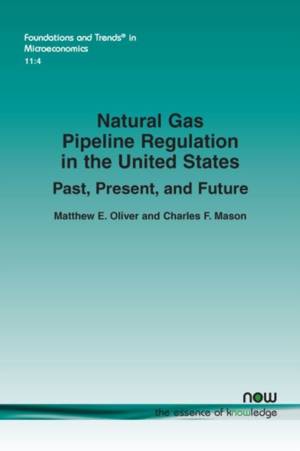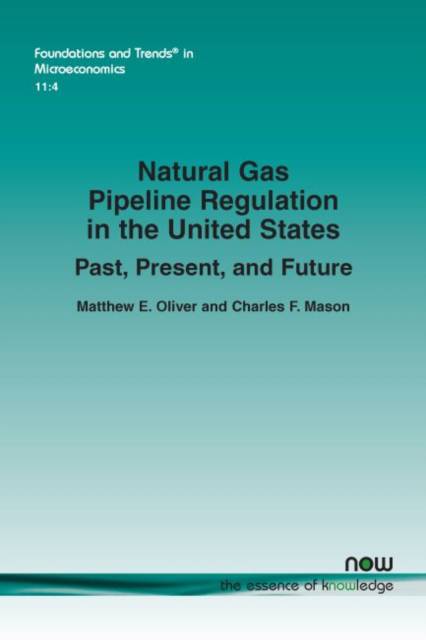
Je cadeautjes zeker op tijd in huis hebben voor de feestdagen? Kom langs in onze winkels en vind het perfecte geschenk!
- Afhalen na 1 uur in een winkel met voorraad
- Gratis thuislevering in België vanaf € 30
- Ruim aanbod met 7 miljoen producten
Je cadeautjes zeker op tijd in huis hebben voor de feestdagen? Kom langs in onze winkels en vind het perfecte geschenk!
- Afhalen na 1 uur in een winkel met voorraad
- Gratis thuislevering in België vanaf € 30
- Ruim aanbod met 7 miljoen producten
Zoeken
Natural Gas Pipeline Regulation in the United States
Past, Present, and Future
Matthew E. Oliver, Charles F. Mason
€ 61,45
+ 122 punten
Omschrijving
Provides a detailed economic overview of regulations and reviews the relevant economic and policy literature that has tracked the evolution and regulation of the US gas transmission market over the past century.
Specificaties
Betrokkenen
- Auteur(s):
- Uitgeverij:
Inhoud
- Aantal bladzijden:
- 74
- Reeks:
Eigenschappen
- Productcode (EAN):
- 9781680834529
- Verschijningsdatum:
- 31/05/2018
- Uitvoering:
- Paperback
- Afmetingen:
- 156 mm x 234 mm
- Gewicht:
- 118 g

Alleen bij Standaard Boekhandel
+ 122 punten op je klantenkaart van Standaard Boekhandel
Beoordelingen
We publiceren alleen reviews die voldoen aan de voorwaarden voor reviews. Bekijk onze voorwaarden voor reviews.









